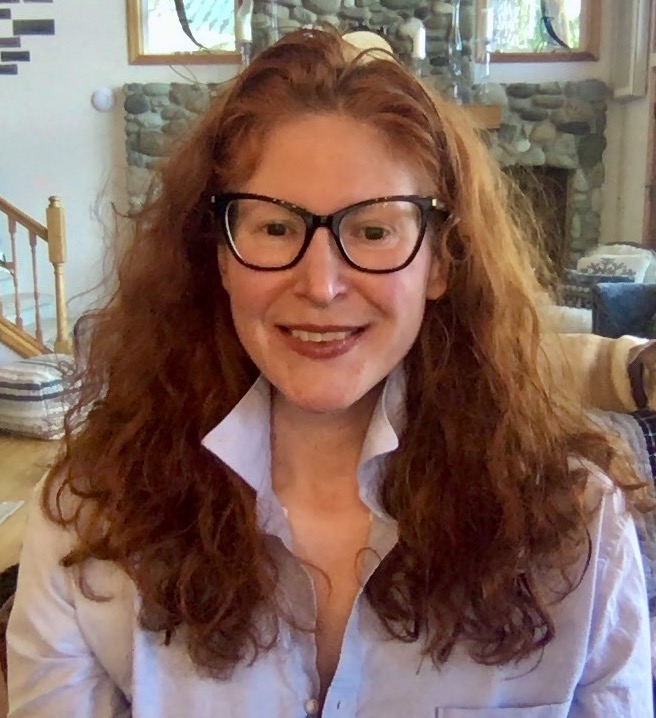 In Couples Counseling with Narcissists and Borderlines, Part 1, I explain the inherent difficulties in doing couples therapy with personality disordered partners. In many cases, couples counseling with narcissists and borderlines becomes a theater of blame. Essentially, the therapy office becomes another stage upon which the abuse, blame shifting and projection play out. Moreover, these issues are compounded if the therapist is biased and/or enabling. In these situations, a complicit therapist wittingly or unwittingly plays both a supporting role in the production and an audience member.
In Couples Counseling with Narcissists and Borderlines, Part 1, I explain the inherent difficulties in doing couples therapy with personality disordered partners. In many cases, couples counseling with narcissists and borderlines becomes a theater of blame. Essentially, the therapy office becomes another stage upon which the abuse, blame shifting and projection play out. Moreover, these issues are compounded if the therapist is biased and/or enabling. In these situations, a complicit therapist wittingly or unwittingly plays both a supporting role in the production and an audience member.
The first installment discusses the differences between effective vs. ineffective couples counseling and Dr John Gottman’s Four Horsemen of dysfunctional relationships. Specifically, the Four Horsemen are behaviors that predict relationship dissatisfaction and divorce. I also explain how the Four Horsemen are exacerbated by Cluster B character pathology. Specifically, partners with histrionic, narcissistic, borderline, sociopathic and/or psychopathic personalities.
Potential couples therapist issues when working with personality disordered-codependent couples.
Therapists are fallible people with issues and baggage of their own. If we don’t identify our own issues and biases and how they may impact our work, it can be problematic to say the least. Furthermore, degrees in Psychology, Social Work and Family Therapy don’t convey experience and competence. A degree means we completed our course requirements.
At the very least, I recommend professionals who graduated from an accredited mental health program. However, you can’t determine experience, competence, biases and goodness of fit without vetting different therapists.
Common problems to be cognizant of when vetting couples therapists:
1. Therapists who are inexperienced, incompetent and/or biased enable the borderline’s and narcissist’s pathology. In other words, the therapist enables their ongoing abuse of you and the children (if any). For example, the therapist states it’s your responsibility as a loving partner to be more patient and understanding of the abuse. Even worse, they encourage “radical acceptance. In other words, not personalizing the borderline’s abuse and continuing to walk on eggshells.
2. Therapists who see what’s going on, but don’t call out the abusive behavior. There are different reasons for this. First, fear of the disordered person. Namely, litigation, stalking, harassment, smear campaigns, etc. Second, a naive strategy to build a therapeutic alliance with the disordered partner, then address the toxic behavior. Third, the therapist sees a conflict cash cow for the milking. They know if they confront the real issues the borderline or narcissist will likely leave and not return.
3. Personality disordered therapists. Yes, they exist and they’re as destructive to clients as they are in their own lives and relationships. There are so many ways for this one to go wrong. For example, a borderline personality disordered therapist who over-identifies with and is negligently sympathetic toward and tolerant of the BPD client to the point of enabling partner and/or child abuse. Or, because of identifying with the NPD partner, sessions devolve into tag team abuse of the non-disordered partner. Similarly, a therapist with unresolved codependency issues can be equally destructive.
There are other potential problems to look for when choosing a couples therapist, but these three are the most common in my experience.
Is there any value in doing couples therapy with narcissists and borderlines?
Short answer? Meh.
Is the goal is to have a healthier, functional, reciprocal, accountable, compassionate, mature and equitable relationship built on honesty, trust and mutual respect? If yes, then in all likelihood you’re wasting your time and money. Bad habits can change. Self-limiting and self-defeating beliefs and attitudes can evolve. Self-awareness can be heightened. One can learn to stop making excuses for self and others.
Good character and integrity are traits that, if not developed in childhood, cannot be learned in adulthood. Character, or the lack thereof, matters. Essentially, personality disorders are disturbances of character. In other words, a person of poor character and low or no integrity.
Recently, a client minimized his ex’s behavior by saying, “But there were times she acted with integrity!” To which I replied, “Having integrity and good character isn’t like having a good hair day. You either have it or you don’t.” Moreover, the real test of character and integrity is how a person behaves toward their loved ones offline, behind closed doors where their Facebook, Twitter and Instagram “friends” can’t see.
Couples counseling with a narcissist or borderline can be helpful if you use it to ease self-imposed guilt. In other words, you now feel you’ve done all you can and end the relationship with a clear conscience. Additionally, it can help end denial that the they’ll get better in any meaningful ways. They may change manipulation and abuse tactics, but their character doesn’t change.
Therapy after divorce to resolve “communication” and “co-parenting issues” with a disordered ex.
Three words: Don’t do it.
Couples therapy with narcissists and borderlines is a theater of blame. This is true before, during and after marriage. Some clients’ exes pressure them into and/or obtain court orders for post-divorce couples therapy. Frequently, the disordered ex is quite keen to do so. As in, chomping at the bit and salivating. Codependents eager to do so are typically in extreme denial.
Again, their character pathology is at the root of their relationship issues and that doesn’t change after you divorce. They often use reasonable sounding bytes like “better communication,” “co-parent” and “best interests of the children.” However, the words are a smokescreen and don’t mean what a reasonable person understands them to mean.
A disordered ex doesn’t want to communicate better with you. They also don’t want (or know how) to co-parent. In other words, cooperating, following custody orders and sharing parental power. They want obedient compliance, no boundaries, unilateral control and continued unfettered access to your life, your emotional equilibrium and oftentimes your money. Narcissistic and borderline exes also want to continue their victim-playing dramas post-divorce.
And post-divorce couples therapy is a gratifying stage upon which they can do so complete with an audience and potential enabling ally — the therapist!
Like I said, don’t do it.
What if you’re court ordered to do couples therapy with narcissists and borderlines post-divorce?
If there’s a court order (i.e. you have no choice), do your due diligence screen potential therapists and weed out the inexperienced and the enabling. For example:
1. Don’t fly blind. Reach out to the court ordered therapist. Ask for an individual session prior to the joint session. Explain that, while you’re not a mental health professional, the problems aren’t new. Plainly state that the ex causes you anxiety and fear. Respectfully and firmly insist upon establishing clear goals. For instance, what is the purpose of meeting and what needs to be achieved in order to stop meeting? Moreover, if one or both parties don’t agree, operate in bad faith or refuse to modify behavior, what then? What if you can’t agree upon goals? How is “reasonable” defined?
2. Don’t use psychology terms or labels. Describe the ex’s behavior in everyday language. Don’t bandy about terms you’ve learned by watching countless “My Ex is a Narcissist” YouTube videos and WordPress blogs. Let the therapist connect the dots.
3. BOUNDARIES! In addition to clear goals, establish ground rules. For example, no name calling. Practice respectful communication. Agree that disagreement isn’t equivalent to a refusal to co-parent. Furthermore, clearly defining boundaries in session should highlight who and what the problem is — the narcissistic and borderline pathology.
4. Insist on a here and now focus. In other words, No post mortems. The marriage is over. Rather, focus on solutions not assignment of past blame. Reach an agreement with the therapist that if this happens in session, you will leave if the therapist doesn’t keep the boundaries.
What’s the best use of your time and money?
Best case scenario, you find an experienced therapist who recognizes the problem and sets clear boundaries in session. Also, the therapist can also be a good court resource if need be. Worst case scenario, you reprise the role of villain in Master-BPD Theater: Still a Victim!
Focus and work on yourself, of course. What attracted to you to this person? Why did the love bombing feel so good instead of creepy? Do you have a pattern of relationships with similar women or men? Did either of your parents have similar personalities? Why did you think tolerating abuse would turn to love?
These are just some questions to get you started. What’re you waiting for? You matter. You’re worthy of the same love and care you poured into that ex-bottomless pit of misery. And if you do, you’ll actually begin to feel and see things different. Additionally, your taste in women or men will also likely dramatically improve when you’re ready to date again. What have you got to lose? Having another crappy relationship or feeling lost and incomplete on your own?
Counseling, Consulting and Coaching with Dr. Tara J. Palmatier, PsyD
 Dr. Tara J. Palmatier, PsyD helps individuals work through their relationship and codependency issues via telephone or Skype. She specializes in helping men and women trying to break free of an abusive relationship, cope with the stress of an abusive relationship or heal from an abusive relationship. She combines practical advice, emotional support and goal-oriented outcomes. Please visit the Schedule a Session page for professional inquiries or send an email to shrink4men@gmail.com.
Dr. Tara J. Palmatier, PsyD helps individuals work through their relationship and codependency issues via telephone or Skype. She specializes in helping men and women trying to break free of an abusive relationship, cope with the stress of an abusive relationship or heal from an abusive relationship. She combines practical advice, emotional support and goal-oriented outcomes. Please visit the Schedule a Session page for professional inquiries or send an email to shrink4men@gmail.com.
 Want to Say Goodbye to Crazy? Buy it HERE.
Want to Say Goodbye to Crazy? Buy it HERE.
The therapist for my BPD ex and I wasn’t very good and started by taking my ex’s side (by that point, my ex had her lies down in a very convincing way.) But one session, my ex slipped up and our therapist realized who she was and the counseling switched to helping me and that help kept me sane. That pushed the limit of the skill of the therapist, but at the time, her help was invaluable.